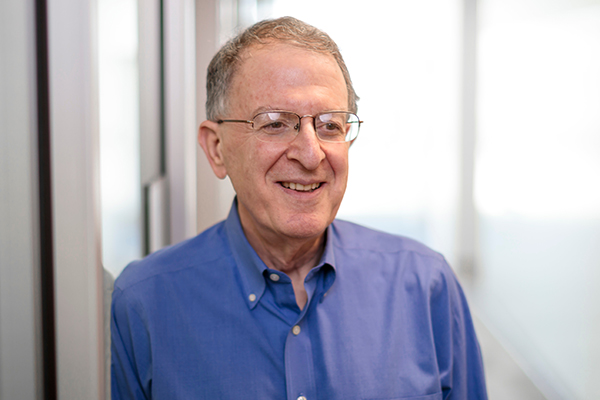Jeffrey I. Gordon, MD, explores the “vast, mysterious world” of the microbiome to find solutions to promote healthy growth in malnourished children. In recognition of his groundbreaking work, Gordon, who is the director of the Edison Family Center for Genome Sciences and Systems Biology at Washington University School of Medicine in St. Louis, received the 2022 Dr. Paul Janssen Award for Biomedical Research.
Jeffrey I. Gordon, MD, considered the “Father of the field” of gut microbiome research, was named this year’s recipient of the Dr. Paul Janssen Award for Biomedical Research. The honor recognizes Gordon’s groundbreaking studies of the role of the gut microbiome in human health and disease.

“The microbiome offers exciting new opportunities for identifying disease mechanisms, identifying therapeutic targets and discovering new therapeutic agents,” says Gordon, the Dr. Robert J. Glaser Distinguished University Professor and director of the Edison Family Center for Genome Sciences & Systems Biology at Washington University School of Medicine in St. Louis. “Work in this area crosses traditional disciplinary boundaries and is advancing our understanding of how human physiology is shaped by our microbial communities and altering our understanding of microbial contributions to noncommunicable diseases.”
Gordon has a long-standing collaboration with Tahmeed Ahmed, MBBS, PhD, executive director of the International Centre for Diarrhoeal Disease Research in Bangladesh (icddr,b) and his group studying the role of the gut microbiome in childhood malnutrition. Together, their work has led to the development of new microbiome-directed therapies for combating childhood malnutrition — a long-standing multifaceted, pressing global health challenge worsened by climate change, the COVID-19 pandemic and geopolitical disruptions.
“The gut microbiome reflects, in so many ways, the varied ways we live, the gradients in wealth and poverty, and access to resources that currently exist, as well as the health disparities that we must acknowledge, address and surmount,” Gordon says.